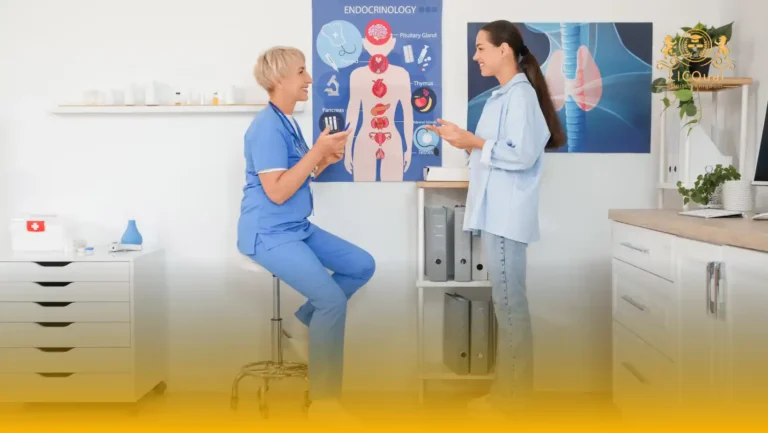The LICQual Level 3 Certificate in Healthcare Innovation and Entrepreneurship is a specialised qualification designed for professionals who aspire to lead change and create innovative solutions within the healthcare sector. This programme is not intended for fresh candidates but is tailored for learners with some professional background who wish to strengthen their expertise, enhance career prospects, and continue their Continuing Professional Development (CPD).
Healthcare is evolving rapidly, and professionals must be prepared to embrace new technologies, creative business models, and entrepreneurial thinking to meet growing demands. This qualification equips learners with a strong foundation in healthcare innovation, business development, and strategic decision-making, enabling them to drive efficiency, improve patient outcomes, and create sustainable healthcare solutions.
The course covers essential areas such as healthcare entrepreneurship, innovation in service delivery, business planning, technology integration, and strategic leadership. By combining academic knowledge with practical applications, learners will gain the confidence and skills needed to design and implement innovative initiatives that can transform healthcare organisations.
Centres delivering this qualification are required to have competent and experienced teaching staff as well as access to relevant learning resources to ensure a high-quality training experience. Additionally, centres must provide modern learning facilities, robust quality assurance mechanisms, and learner support services to ensure training excellence and learner success.
Completing this qualification not only enhances professional expertise but also opens pathways to advanced study and leadership roles, making it a valuable investment for learners aiming to influence the future of healthcare through innovation and entrepreneurship.
Course Overview
Qualification Title
LICQual Level 3 Certificate in Healthcare Innovation and Entrepreneurship
Total Units
6
Total Credits
24
GLH
120
Qualification #
LICQ2200718
Qualification Specification
To enroll in the LICQual Level 3 Certificate in Healthcare Data Analytics, applicants must meet the following criteria:
|
Qualification# |
Unit Title |
Credits |
GLH |
|---|---|---|---|
|
LICQ2200718-1 |
Introduction to Healthcare Innovation and Entrepreneurship |
4 |
20 |
|
LICQ2200718-2 |
Understanding Healthcare Systems and Market Opportunities |
4 |
20 |
|
LICQ2200718-3 |
Design Thinking and Creative Problem-Solving in Healthcare |
4 |
20 |
|
LICQ2200718-4 |
Healthcare Technology, Digital Solutions, and Innovation |
4 |
20 |
|
LICQ2200718-5 |
Business Planning and Financial Management in Healthcare Entrepreneurship |
4 |
20 |
|
LICQ2200718-6 |
Implementing Innovation and Driving Sustainable Change |
4 |
20 |
By the end of this course, learners will be able to:
Unit 1: Introduction to Healthcare Innovation and Entrepreneurship
By the end of this unit, learners will be able to:
- Explain the fundamental concepts of innovation and entrepreneurship in healthcare.
- Analyse the importance of innovation in improving healthcare services and patient outcomes.
- Identify the key drivers and barriers to healthcare entrepreneurship.
- Apply basic entrepreneurial principles to healthcare-related scenarios.
Unit 2: Understanding Healthcare Systems and Market Opportunities
By the end of this unit, learners will be able to:
- Describe the structure and functions of healthcare systems at local, national, and global levels.
- Assess healthcare market trends and identify potential areas for innovation.
- Evaluate the role of stakeholders and partnerships in healthcare ventures.
- Analyse opportunities for entrepreneurial growth within healthcare ecosystems.
Unit 3: Design Thinking and Creative Problem-Solving in Healthcare
By the end of this unit, learners will be able to:
- Explain the principles of design thinking and its relevance to healthcare innovation.
- Apply creative problem-solving approaches to healthcare challenges.
- Develop innovative solutions that address unmet needs in healthcare delivery.
- Evaluate the effectiveness of design thinking methodologies in entrepreneurial projects.
Unit 4: Healthcare Technology, Digital Solutions, and Innovation
By the end of this unit, learners will be able to:
- Discuss the role of technology and digital tools in driving healthcare innovation.
- Assess the impact of digital health solutions on patient care and operational efficiency.
- Explore current and emerging technologies shaping healthcare entrepreneurship.
- Apply innovative digital strategies to real-world healthcare challenges.
Unit 5: Business Planning and Financial Management in Healthcare Entrepreneurship
By the end of this unit, learners will be able to:
- Develop a business plan tailored to healthcare innovation.
- Explain the financial principles relevant to healthcare entrepreneurship.
- Assess funding options and investment opportunities for healthcare ventures.
- Apply financial management strategies to support business sustainability and growth.
Unit 6: Implementing Innovation and Driving Sustainable Change
By the end of this unit, learners will be able to:
- Explain the processes involved in implementing healthcare innovations.
- Evaluate strategies for managing change in healthcare organisations.
- Assess the challenges of scaling healthcare innovations for long-term success.
- Apply leadership and change management principles to drive sustainable innovation.
This course is designed for healthcare professionals who want to combine innovative thinking with entrepreneurial skills to create impact in the healthcare industry. It is ideal for individuals already working in clinical, managerial, or administrative roles who are looking to advance their careers, lead healthcare projects, or launch innovative solutions. If you are ready to apply practical strategies, drive change, and develop business-focused healthcare skills, this program is tailored for you.
Healthcare Managers and Administrators
- Professionals leading hospital or clinic departments
- Individuals overseeing operational efficiency and strategy
- Managers responsible for implementing innovative processes
- Staff ensuring regulatory compliance while driving change
- Professionals aiming to improve patient care through innovation
Clinical Professionals and Practitioners
- Doctors, nurses, and allied health staff seeking leadership skills
- Practitioners looking to enhance service delivery through innovative solutions
- Staff exploring entrepreneurial approaches within clinical settings
- Professionals integrating innovation into patient care practices
- Clinicians aiming to develop new healthcare programs or services
Healthcare Entrepreneurs
- Professionals planning to launch healthcare startups
- Individuals exploring business opportunities in healthcare innovation
- Entrepreneurs aiming to identify market gaps and develop solutions
- Staff needing practical knowledge in healthcare business development
- Innovators seeking strategies to grow sustainable healthcare ventures
Healthcare Project and Innovation Specialists
- Professionals managing healthcare projects with innovation goals
- Staff responsible for implementing new technologies or procedures
- Individuals monitoring performance and process improvements
- Specialists driving efficiency and quality in healthcare operations
- Leaders seeking methods to enhance project impact and outcomes
Healthcare Policy and Strategy Professionals
- Professionals advising on healthcare policies and innovation strategies
- Staff aligning organizational initiatives with regulatory frameworks
- Individuals analyzing trends for strategic decision-making
- Policy developers seeking entrepreneurial approaches in healthcare
- Professionals aiming to influence healthcare service improvement
Healthcare Trainers and Educators
- Trainers teaching innovation and entrepreneurship in healthcare
- Staff developing professional development programs
- Educators introducing entrepreneurial thinking to healthcare teams
- Professionals guiding teams on practical innovation applications
- Trainers seeking skills to enhance program credibility and effectiveness
Healthcare Business Development Professionals
- Professionals managing business strategies for healthcare organizations
- Staff exploring new service models and revenue streams
- Individuals implementing growth-focused healthcare projects
- Professionals seeking skills to combine clinical knowledge with business acumen
- Leaders driving organizational innovation and competitive advantage
Centres delivering the LICQual Level 3 Certificate in Healthcare Innovation and Entrepreneurship must meet specific requirements to ensure high-quality delivery, learner success, and compliance with international training standards. To provide this qualification effectively, centres are expected to:
- Have qualified and experienced teaching staff with expertise in healthcare, innovation, business development, and entrepreneurship.
- Provide appropriate learning resources, including up-to-date healthcare case studies, innovation toolkits, and access to relevant digital platforms.
- Ensure access to modern facilities, such as classrooms, online learning platforms, and technology to support blended and flexible learning.
- Maintain robust quality assurance systems to guarantee that teaching, learning, and assessment meet international education standards.
- Support learners with academic guidance, mentoring, and constructive feedback to enhance their learning journey.
- Provide CPD opportunities for staff to keep teaching teams updated on the latest developments in healthcare innovation and entrepreneurship.
- Offer administrative and learner support services to assist with enrolment, assessments, and progression opportunities.
- Demonstrate compliance with regulatory and awarding body standards to maintain credibility and trust in qualification delivery.
By fulfilling these centre requirements, providers ensure that learners receive a professional, practical, and industry-relevant learning experience, equipping them with the skills to drive innovation and entrepreneurship in healthcare.
Assessment and Verification
All units within this qualification are subject to internal assessment by the approved centre and external verification by LICQual. The qualification follows a criterion-referenced assessment approach, ensuring that learners meet all specified learning outcomes.
To achieve a ‘Pass’ in any unit, learners must provide valid, sufficient, and authentic evidence demonstrating their attainment of all learning outcomes and compliance with the prescribed assessment criteria. The Assessor is responsible for evaluating the evidence and determining whether the learner has successfully met the required standards.
Assessors must maintain a clear and comprehensive audit trail, documenting the basis for their assessment decisions to ensure transparency, consistency, and compliance with quality assurance requirements.







